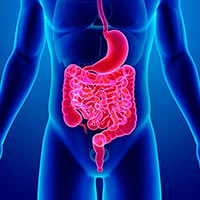A foundation committed to provide hope to the patients
The DigestScience Foundation, 10 years of fight against digestive diseases
DigestScience is to date the first public purpose foundation in France entirely dedicated to research on digestive diseases and nutrition (decree of July 21, 2008). A real booster/agitator, DigestScience is involved in many areas, including research, care, training, education, and information to health care professionals, scientists and patients. DigestScience is the only one who can combine medical research with the impact of the nutrition factor and intestinal ecology. This combination is considered by the whole scientific community as a critical path towards progress in terms of treatment, diagnosis and prevention.

Our goal: ensuring that every patient benefits from today's science.

DigestScience is primarily a doctor and researcher initiative to mobilize new forces, promote research and develop new treatments for our patients.Pierre DESREUMAUX
Professor of Medicine
Gastroenterologist, CHRU, Lille
Director of an INSERM research unit (U995)
President of the DigestScience foundation

